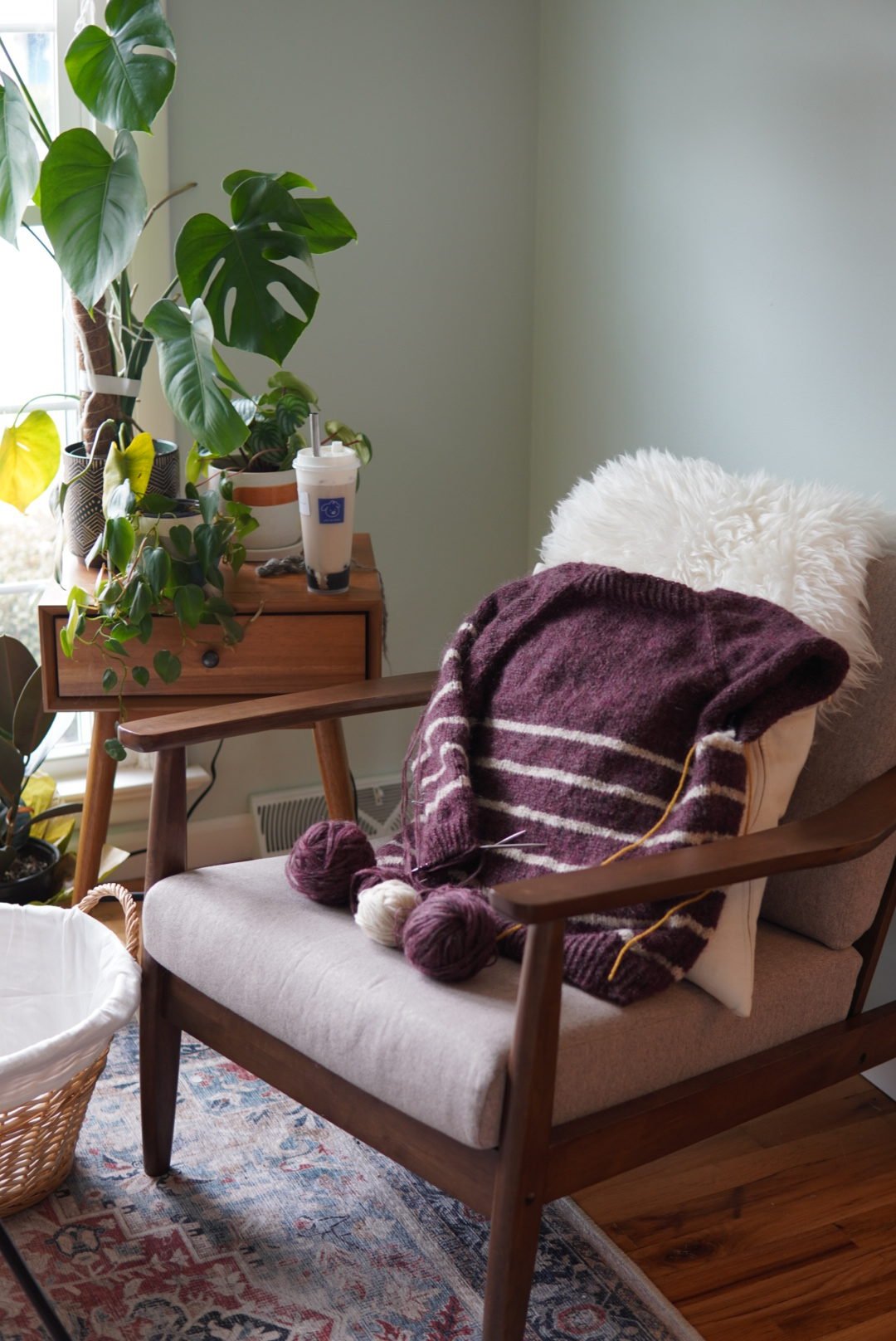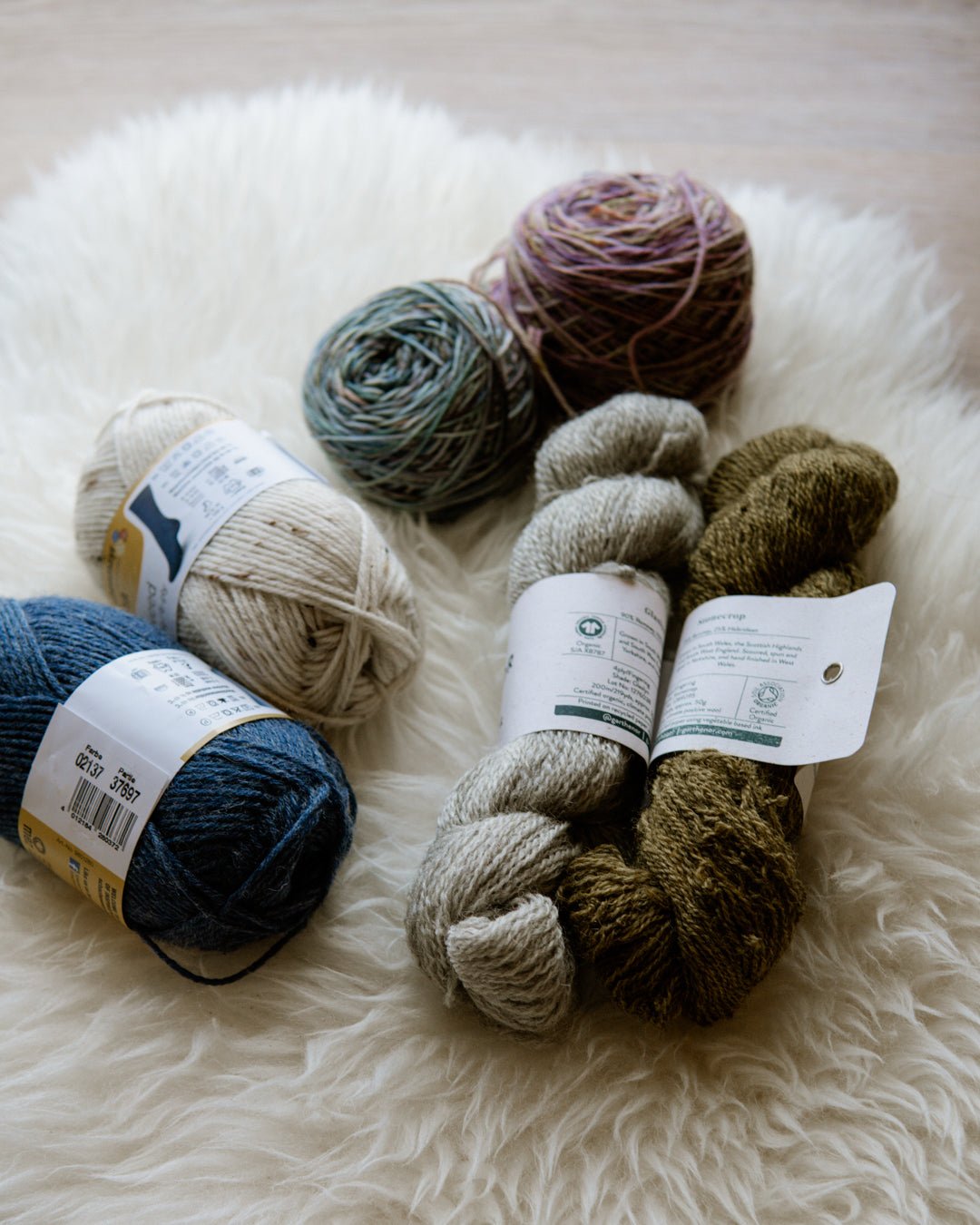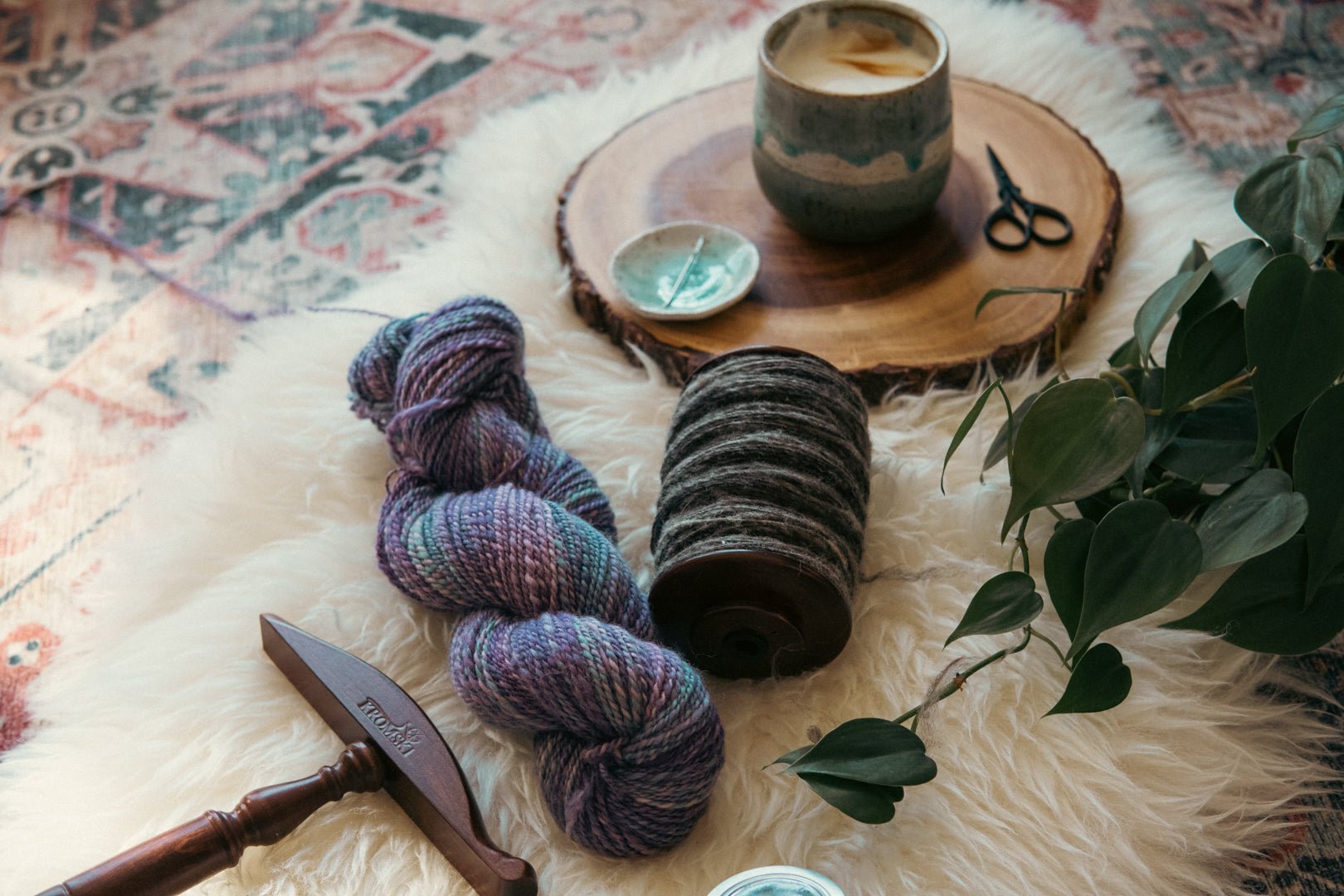
Being bad at capitalism from a business perspective.
When I first started my knitting design business, it was to support my friend Jen at 626 Yarn and her Thai Iced Tea gradient sock set. We ended up raising funds to donate towards organizations that supported Asians and Asian Americans, during a time of rising hate crime against us.
To be honest, as new businesses it doesn’t make very much financial sense to donate huge chunks of income. And yet, we have continually made choices which in any reasonable capitalist society would be called “bad business.” At that time, she told me that her hope for her little business was to be “bad at capitalism” so that we can make a better world. And this phrase has been stuck in my head ever since.
The first year as a designer was hard. Really hard. I was hardly earning anything and I didn’t make enough to think about giving back to the community. But with the release of Coloring Book Raglan and all your wonderful support, and the slow but steady growth of my monthly Ko-fi subscribers, I am finally reaching a point where I can talk about how I plan to give back to the knitting community. And now I'm coming back to this wise concept from Jen... being bad at capitalism.. on purpose... as an act of resistance against unjust systems.
I am lucky enough to be housing-secure in 2021 for the first time in my entire adult life. My income as a knitting pattern designer is intended to help us provide a little more retirement-security, and save up for any incurred big expenses and emergencies. In other words, my income still goes towards my basic needs, but isn’t the main bulk of it.
Would I like to work my way up to full time, and am I working nearly full time hours? Yes. But am I willing to underpay others or treat others poorly to get there? Absolutely not. And I'm lucky enough that I can try to build a business model that's a little different than what other designers may be used to.
Aas I look more and more into our community I realize there are so many injustices in the finances of our community. I’ve decided instead to leverage what little resources I have (such as my Instagram platform, or my relationship with 3rd party publications such as yarn companies and magazines, and my small but steady stream of income from the Ko-fi subscription) to try to change some of these things, by purposely making bad business decisions that shrink my profits.
What I’ve done is identify places where I think there might be injustices, and take action to rectify that in small ways. Here are a few areas where I’m trying to make small, strategic decisions that will hopefully make our industry a more just one.
- LGBTQIA+, disabled, and POC makers are under represented. I prioritize working with folks from marginalized communities to try to help tip the scale back towards equity a little more. Whether that is POC owned publications or yarn companies, I want to make sure that I’m lifting up others in my community with my platform. I also make sure that I always have a diverse group of test knitters because I truly want to see my patterns shine on every body.
- Sample knitters are underpaid using a system commonly known as “piecework.” They are paid per yard rather than per hour, and it often amounts to less than minimum wage. This year I’m starting to hire sample knitters. There are 3 ways I’m trying to promote more equity for sample knitters: 1) I always offer the top of the range of what sample knitters quote me, then round up to an even number so that it’s even higher per yard, and I can confidently say I pay top of industry range and then some. 2) My hope is that my sample knitters can make a living wage as I increase my own income. I plan to devote a certain percentage of my pattern sales in the future to offer some back pay for sample knitters who worked on those projects, too, so that if my patterns are successful, I can pay sample knitters bonuses and also increase future pay for them as my income increases over time. I won’t leave my freelancers behind as my business grows.
- Designers aren’t paid enough (yes, including me), and those who are from marginalized communities and backgrounds who might not be as financially secure as I am would not be able to feasibly enter the industry and stick to it, leading to talent loss. I am trying to make some headway in this area by negotiating for more pay, talking with different publications about why they should pay more, networking with fellow designers and makers and telling them to charge more, and just generally trying to make decisions that don’t undercut other designers’ hard work. I do not offer free patterns (except to paid Ko-fi monthly subscribers in tiers $10/month and up) for this reason, and I will be periodically raising my prices to reflect real life cost of living changes.
- While designers are not paid enough.. Patterns and yarn can be expensive and it’s often hard for people to be able to knit mindfully for their bodies because it’s just expensive. I usually have patterns available for those who are in financial need. All you have to do is email me at aimee@aimeeshermakes.com and I can send over the pattern you need, and if I have some slots available I send it over, and if not I put you on a list for the next time I have them. No questions asked. And if you have trouble affording yarn and like test knitting, consider test knitting for me and I will try to get you some yarn support, which brings me to my next point..
- More and more, our industry is relying on test knitters to do a huge amount of work. Test knitters are expected to do a lot for designers, do a ton of labor, and buy their own yarn. Starting with my most recent sock test, I am starting to provide either yarn support or a small cash stipend for sample knitters to help knitters subsidize at least part of their yarn use. I’m also starting to work with my yarn dyeing colleagues to provide 50-100% off yarn purchases my test knitters are making so that those who might not be able to afford knitting my patterns using recommended yarn have an opportunity to do so at a much lower cost, through test knitting. I want my test knits to be a space where not only I get something out of it, but test knitters can receive some compensation too. It doesn’t feel like much to me, but it’s a start.
I just want to say also that it’s the support of all my customers who make this possible. Without the success of the Coloring Book Raglan this year and without the steady but growing income from my Ko-fi subscribers, I wouldn’t have been able to even begin to think about these things. While I don’t make a huge amount yet myself and I pay myself the least out of all the freelance workers working with me on my patterns, that’s a deliberate choice.
However, please know that I am in a position to do so. Other designers might not be in a financial position to do this, and they are not obligated to fix this industry’s poor pay for everyone around us.
If you are a small business owner in the fiber industry and you are financially secure and in a position to do so, I highly encourage you to look at your finances and look at the people you work with and see if there’s changes you can make in your business to make things fairer for all. We can sit around and talk about racism and classism in our industry all day but if we don’t make these concrete changes, then our industry will never change. And if we don’t all thrive, then this industry cannot thrive.
And the thing is, in the day that's why I'm in business after all. I'm here to try to make big waves in our industry, and I want to run a business that is emotion and empathy driven, not one that is profit-driven.
And if you are a small business owner, and are able to do so, join me in doing that work by looking at your own business practices. Maybe what I'm doing what make a single difference. But maybe, just maybe, it'll change things for the better... just a little. And if that comes to pass, then I think my ‘bad business decisions’ will actually actually good business because no one will be left behind.
The more people can grow and thrive, the better it is for all of us and I truly believe that it’ll pay off in the end. For everyone.
This blog is supported by my Ko-fi monthly subscribers. If you found this post helpful, you can support me in this work by joining my monthly subscription or donate one time at my Ko-fi page:




Leave a comment
This site is protected by hCaptcha and the hCaptcha Privacy Policy and Terms of Service apply.